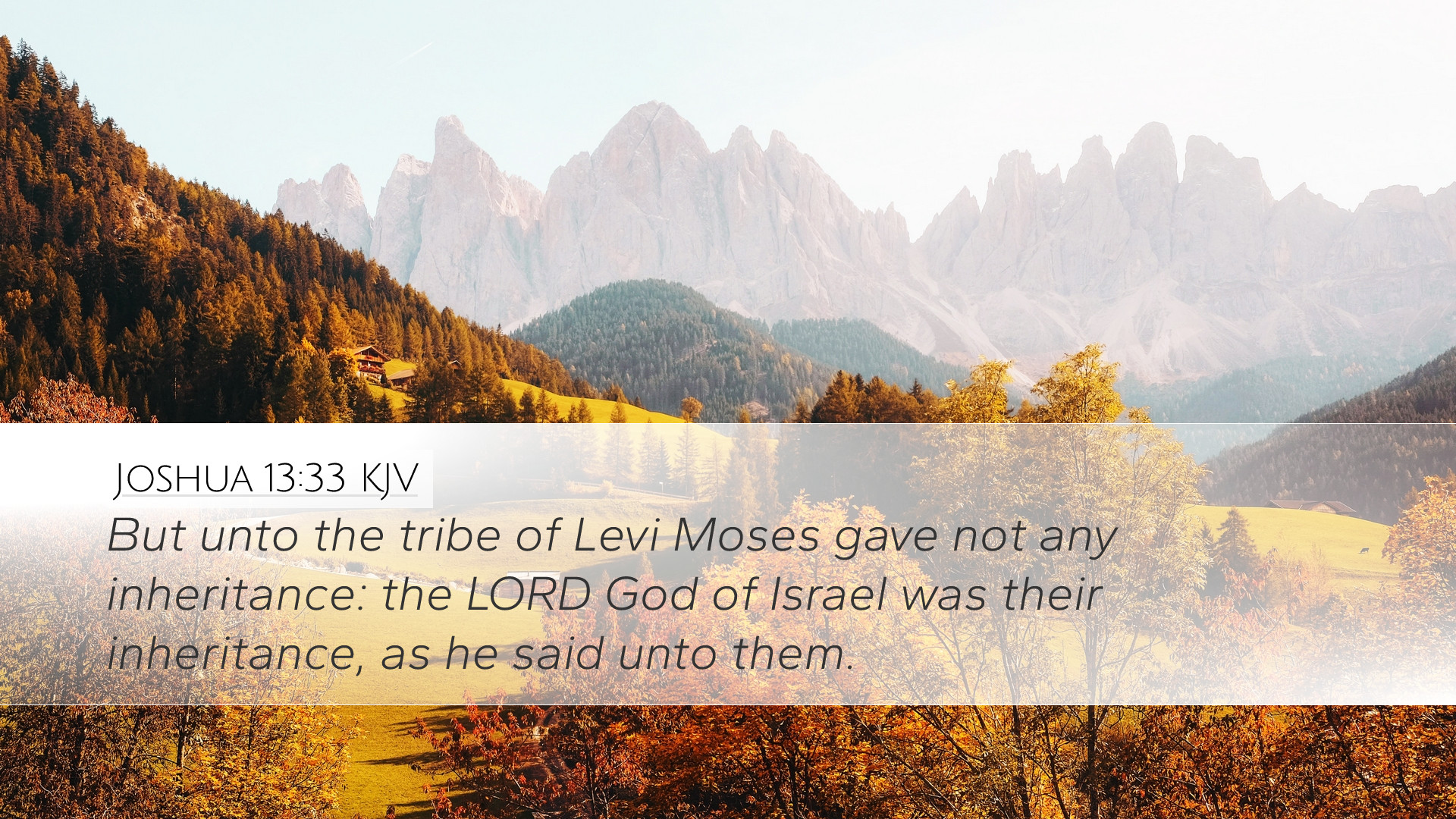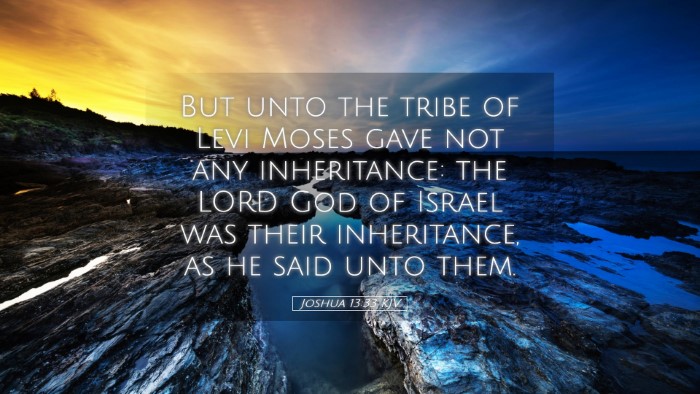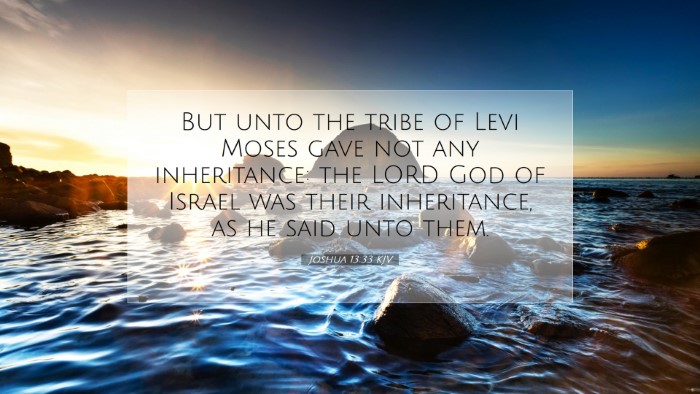Commentary on Joshua 13:33
Verse: "But unto the tribe of Levi, Moses gave not any inheritance: the Lord God of Israel was their inheritance, as he said unto them."
Introduction
This verse stands as a significant declaration regarding the tribe of Levi, emphasizing their unique position among the tribes of Israel. In the broader context of Joshua's distribution of the Promised Land, this denial of a territorial inheritance to Levi underscores the spiritual inheritance bestowed upon them by God.
Key Insights from Historical Commentaries
Matthew Henry's Perspective
Matthew Henry highlights the distinction of the Levites, noting that while other tribes received land, the Levites were designated as the Lord's ministers. He recounts that Moses did not designate an earthly inheritance for them, as they were to serve God in the tabernacle and manage the affairs of worship. This priestly role granted them a more profound spiritual inheritance, making their relationship with God paramount.
Albert Barnes' Analysis
Albert Barnes elaborates on the significance of the priestly duty carried by the Levites. He states that their lack of land inheritance was compensated by the Lord Himself being their portion. Barnes asserts that the Levites were sustained by the tithes and offerings given to God, thus their dependence on divine providence exemplifies an essential aspect of faith and divine support. He also emphasizes the scriptural foundation of their service and their critical role in the spiritual life of the nation.
Adam Clarke's Interpretation
Adam Clarke provides a detailed examination of the Levitical cities, which served as their inheritance. He notes that the Levites were given cities scattered throughout Israel, allowing them to minister effectively and uphold the law. Clarke points out that this arrangement symbolically represents the divine selection of the Levites, reinforcing their devotion to God, contrasting with the land-driven pursuits of the other tribes. He also affirms God’s agreement to be their inheritance, highlighting the manifestation of spiritual treasures over material wealth.
Theological Implications
The verse conveys significant theological themes that are relevant to the understanding of God's chosen people:
- The Nature of Inheritance: Unlike the other tribes, the Levites were promised an inheritance that transcended physical land. This concept of spiritual inheritance serves as a model for understanding our relationship with God today.
- Divine Provision: The Lord's provision for the Levites illustrates God’s faithfulness. Their sustenance was a testament to the belief that God provides for those who serve Him, which remains a foundation for those in ministry today.
- Priesthood of All Believers: The unique role of the Levites as God's entrusted representatives invites reflection on the New Testament teaching of the priesthood of all believers. It calls for those engaged in ministry to consider their spiritual inheritance and calling.
Practical Application
The implications of Joshua 13:33 extend to modern believers in several ways:
- Service and Sacrifice: As the Levites were set apart for service, modern Christians are called to serve. This service often comes at a personal cost, reminding believers of the depth of commitment required in ministry.
- Trust in God’s Provision: Like the Levites, Christians are assured of God’s provision in their lives. This verse encourages believers to trust in divine care as they pursue their calling and ministry roles.
- Fostering a Relationship with God: Recognizing God as our inherent portion signifies the need for a personal and continuous relationship with Him. It serves as a reminder that spiritual wealth is far superior to worldly possessions.
Conclusion
Joshua 13:33 encapsulates the heart of God’s design for His people, showcasing the Levites' unique position as a reminder of the spiritual riches found in Him. As pastors, students, and scholars engage with this text, they are invited to reflect on God's faithfulness, the nature of their service, and the profound truth that the Lord Himself is the ultimate inheritance.


